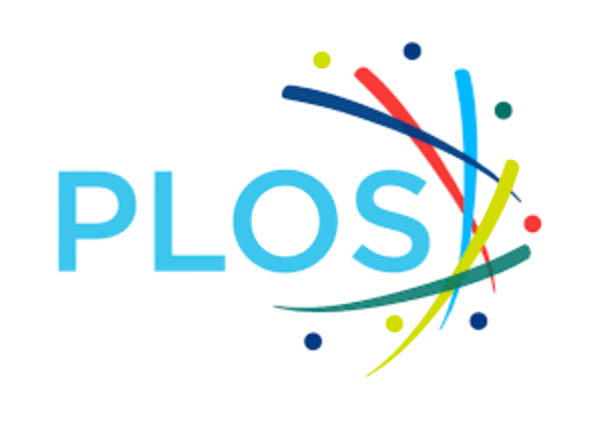Back in 2000, PLOS (or the Public Library of Science, as it was then known) was just the beginnings of an idea in the minds of co-founders Harold Varmus, Patrick O. Brown, and Michael Eisen. Nearly 25 years later, its goals remain unchanged: to break boundaries, empower researchers, redefine quality, and (back in 2003, when its first journal, PLOS Biology launched, most controversially), to open science. Importantly, PLOS has always viewed its success in achieving these goals in terms of adoption by the wider community. You may or may not agree about whether they have successfully advanced all of these goals, but we must surely all agree that they have definitely broken some boundaries in the cause of opening science.
Open access (OA) may be mainstream now but, 20-odd years ago, it was seen as a huge threat by most publishers, and PLOS, as one of the first fully OA publishers, was a major disruptor. The original spark for PLOS’s founding was Brown, Eisen, and Varmus’s open letter calling for researchers to pledge that, from September 2001, they would “publish in, edit or review for, and personally subscribe to only those scholarly and scientific journals that have agreed to grant unrestricted free distribution rights to any and all original research reports that they have published, through PubMed Central and similar online public resources, within 6 months of their initial publication date.” The letter was signed by 34,000 scientists, and PLOS was subsequently launched as a not-for-profit publisher in order to prove that OA was viable. Its first two journals (PLOS Biology and PLOS Medicine) showed that publishing could be both highly selective AND open access. As a result of PLOS’s success, and after a fair amount of prodding by funders, other publishers also came on board; at the time of writing, DOAJ lists 10.5M OA journal articles, published by nearly 21k journals. We’ve certainly come a long way!

But what of PLOS itself in the intervening years? Has it continued to break boundaries and open science? And has it done so while empowering researchers and redefining quality? In this post, I’m going to take a quick look back at PLOS’s evolution before looking ahead to what I think, if successful, could be one of their most impactful and boundary-breaking initiatives to date — their recently announced project to explore the needs of the research ecosystem and to design a fundamental change in how research results are published. This post is based on a recent conversation and follow-up emails about this project with PLOS CEO (and fellow Scholarly Kitchen Chef) Alison Mudditt, and its Chief Scientific Officer, Veronique Kiermer, .
First, a bit of context. There’s a brief history of PLOS on their website, but I want to take a look at it through the lens of PLOS’s recent strategic planning cycles. Over the course of its first decade or so, PLOS disrupted the publishing ecosystem in several ways. In addition to launching its first journals, it also started PLOS ONE (the first megajournal, intended by the founders to help redefine scientific publishing by focusing on rigorous research rather than perceived impact) and introduced an open data policy to open up research beyond the article. However, by the time Alison arrived in 2017, PLOS was facing some fundamental challenges: declining revenues and the threat of a first-ever deficit; declining submissions to PLOS ONE, and an increasing perception that its content was low quality; a loss of market share by the (then) seven PLOS journals; and a range of organizational “debts” incurred during the previous period of rapid growth. To quote Alison: “In many ways, our revenue and output growth had outpaced the development of our capabilities and operations.”
The first strategic planning cycle under Alison’s leadership (2018-2020), therefore, focused on stabilization and seeding innovation, through a combination of improving operations (in order to achieve financial sustainability) and developing an innovation pipeline (to identify PLOS’s next “big thing”). Building on that, in the following cycle (2021-2024), PLOS sought to lay the foundations for breaking some more boundaries by reestablishing itself as a thought leader and influencer, in particular, by challenging orthodoxy, harnessing underappreciated trends, and addressing unarticulated needs.
Which brings us to the current planning cycle (2024-2027), which was the main focus of my conversations with Alison and Veronique. WIth this new project, PLOS has set itself the ambitious goal of seeding transformational (my highlight) change in scholarly publishing: overcoming two of the big barriers that currently exclude many researchers from participating in Open Science — the lack of recognition for Open Science contributions, and the lack of affordability — by thinking beyond the article and beyond the Article Processing Charge (APC).
The first phase of this project will focus on research and design — with extensive community input — and is expected to take 18 months; based on the findings from this phase, they will then move on to develop and test a prototype product. The research and design phase comprises three elements:
- Design of a knowledge stack, in which all important contributions to Open Science can be discovered, the researchers involved recognized, and their contributions evaluated (for example, by their funders or institutions)
- Financial modeling — developing an alternative, non-APC based business model for the knowledge stack
- Community building through broad and deep community consultation, supported by a clear communications plan
As someone with a passion for improving recognition and reward for all forms of research contributions, when I learned of this project I immediately wanted to know more. My personal interest stems from my time at ORCID, whose vision is “a world where all who participate in research, scholarship, and innovation are uniquely identified and connected to their contributions…”. Research is about so much more than publishing an article in a journal, and yet that’s what so many — if not most — researchers are incentivized to do. One of the reasons often given for this is the challenge of accessing reliable data about other outputs and contributions. But enabling recognition for all forms of contribution (i.e., not just journal articles) and all types of contributor (i.e., not just academic researchers) is one of the key use cases for ORCID and other persistent identifiers (PIDs), such as digital object identifiers (DOIs). ORCID records, for example, can contain information about many different forms of research contribution — from data sets to artistic performances, and from peer review to volunteer work — most of which can be or have been assigned their own PIDs. Tools (such as the Contributor Roles Taxonomy (CRediT), now a NISO standard), as well as initiatives like the Declaration on Research Assessment (DORA) are other great examples of community efforts to effect change in how we recognize and reward different forms of research contribution. But progress has been painfully slow — mostly (in my view) because the culture change needed to move away from the current system of recognition is huge, and it will require collective action by all sectors of the community. And, despite CRediT, DORA, PIDs, and other cross-community efforts, there’s still a tendency (on all our parts) to pass the buck (change will only happen if [funders/ institutions/ publishers/ researchers] lead the charge). But if no one takes the initiative, nothing will ever change.
So I find it inspiring that PLOS is willing to put a significant amount of time and effort into trying to break down this barrier — supported, for the first 18 months of research and design, by generous funding of $1m from the Gordon & Betty Moore Foundation and $1.5m from the Robert Wood Johnson Foundation.
However, as mentioned, I do also have some concerns. This is a big project on a tight deadline and, even with a generous budget, there is a lot of work to be done. PLOS is staffing up to execute this work: a mix of contractors and dedicated PLOS staff will be working concurrently on the three strands of the first phase of the project for the next 18 months. But, while there won’t be any actual technical development during this phase, it will still be a major undertaking to onboard that many new people, make sure that time really is freed up to enable relevant staff to work on the project, and bring team members along who are less or not involved (and who may worry that this is going to add more to their own workloads). Alison and Veronique’s aim is, therefore, to keep the project connected with, but separate from, PLOS’s day-to-day work. They recognize the need to bring people with them internally, but without disrupting their workloads, and they hope that the PLOS executive team’s leadership, alongside plenty of internal consultation, will do the trick.
Another area of concern I raised with Alison and Veronique relates specifically to the community-building strand of the project. Having done a lot of this sort of work myself, I know that it’s both important and challenging. PLOS plans to engage with “researchers, funders, research institutions, libraries, and the digital infrastructure to design solutions based on the knowledge stack, that will work across disciplines, regional, and economic contexts.” That’s quite a tall order and, when I asked, Alison and Veronique clarified that, in fact, this project will not, for example, encompass all disciplines — they don’t have the expertise (or, in my view, the time!). Encouragingly, they are committed to reaching beyond the usual suspects virtually, by building a large user panel comprising hundreds of volunteers, who will be asked to help with user experience (UX) testing, research, and more. They also plan to convene a number of regional in-person meetings that will, by necessity, be restricted to small numbers of participants. However, they will be quite diverse in terms of geography, economics, and organization type, and PLOS plans to then validate the in-person discussions through follow-up work with larger groups. Per Alison and Veronique, PLOS is not currently planning to proactively engage with other publishers; instead, based on their theory of change, they want to move fast to try to understand PLOS’s own circumstances and motivations, and to design a solution that works for them. However, they will be transparent about what PLOS is doing and how it works; and any new development will be open source, so that other publishers can adopt or adapt it going forward.
My last big question for Alison and Veronique was how confident they are that this project will be successful — and what will that success look like? For the initial planning phase, their goal is to “be confident that we can build something that addresses the problems we set out to tackle,” and the anticipated outputs are: a proposed solution design for the knowledge stack grounded in user experience; an economic analysis and business model for the knowledge stack; a communications program, including a public report; and a small group of engaged stakeholders who have committed to participating in the next phase of the project. After that, they expect to spend several years building a prototype “something” that enables their authors to showcase, connect, and be recognized for a wider variety of contributions, supported by a financial model that will enable them to pay for this product or service equitably. That seems like a pretty good goal to me, and they are (reasonably!) confident that it’s one PLOS can achieve. It would certainly set us on the way to transforming how we value (and evaluate) research contributions, and would also be very much in keeping with PLOS’s own goal of breaking barriers in the cause of opening science. So I will be watching their progress with interest and very much hope they’re successful — given their track record of driving change in scholarly publishing, I’m cautiously optimistic!
Discussion
12 Thoughts on "PLOS’s Next Big Thing"
Exciting! I’m looking forward to following this project. I think of PLOS One as the prototype that many copied. Ultimately it birthed commercialization of the APC model. An unintended adaptation that probably ran counter to the direction that its inventors expected. Now I wonder… In a “non-article” and redefining publishing future, with possible growth of publishing unit types and the increased complexity of linking information meaningfully — what could the unintended consequences be? Growth of information, technology, and complexity has tended to favor network effects that larger publishing organizations capitalize on better than smaller orgs. I’m reminded of Lehman’s Law. “As an E-type system evolves, its complexity increases unless work is done to maintain or reduce it”. As it gets more complex, whose capabilities could it play into the hands of? There could be future unintended consequences that the model will probably try to design for. Ambitious and difficult – exciting!
Thanks for the support and the questions, Neil. You’re right about the potential for unintended consequences – I don’t think that anyone involved in the early days of APCs pictured our current predicament! And we’re already seeing ways in which the principles and infrastructure of open science can be coopted by larger organizations (Danny Kingsley has begun writing up her excellent Force11 talk on these issues https://upstream.force11.org/language-co-option-in-the-open-space/).
That said, the ways in which we’re approaching this are intended to guard against this as much as possible. Wide consultation with all key stakeholders will be critical to identifying potential issues and keeping us true to our vision of a model that has equity and sustainability built in, as will our intention to share progress with the full community (remember, PLOS’s success is all about enabling others to follow). But if I’m honest, it’s not something we have full control over. There will always be others actors with different priorities and agendas, and so there has to be a responsibility on other stakeholders to make informed decisions.
Alison, I was at a dinner with Vitek Tracz in 1995 where he described his idea for an author pays business model. The immediate response to him was that people were going to game the system, on both sides (publishers and authors). Unfortunately, I don’t have a transcript of that dinner conversation. The consequences of APCs may have been unintended, but they were not unforeseen.
“There will always be others actors with different priorities and agendas…” Indeed, there will be. So, while I agree that PLOS doesn’t have full control over how others will respond (in fact I might even say little or no control), what PLOS (and any other organization seeking to create change) can do is play out scenarios for how others might respond, and assess the probability, feasibility, and desirability of those responses. (Those who have attended a Charleston Trendspotting session with Leah Hinds and me will recognize that triad of a framework for futures thinking.) Personally, I’m not very comforted at the thought that those involved in the early days of APCs didn’t picture at least some of our current predicament! Even if they had chosen to go forth in the belief they could help the system steer clear of the issues, I hope someone had red-teamed the strategy to know what they were up against!
It is surprising to me that PLOS continues to get charitable funding to devise disruptions when they do not have a good track record with their previous disruptions.
Disruption 1 (2003): We can publish high quality/low quantity research using an author-pays business model. Indeed, PLOS proved it was not possible to do this in a sustainable way at the APC level that they were charging, which led to disruption 2.
Disruption 2 (2006): We can make a lot of money to pay for our high quality/low quantity publishing operation by publishing low quality/high quantity research. This proved to be very successful for PLOS, but it had the unintended consequence of helping to inspire an explosion in predatory publishing. Granted, the low quality/high quantity business model had already been around for several years after being pioneered by BioMed Central in 2000, but PLOS One took the model to a new level that had dollar signs dancing in publishers’ (and prospective publishers’) eyes.
I wish PLOS better luck with disruption 3. I am genuinely interested in seeing what they come up with beyond PIDs for open science contributions and some form of subscription or charity model to fund them.
Hi Mike,
Former PLOS-er in the wild here. A couple of things:
1. Low quality/high quantity is excessively reductive. PLOS has spent a lot of time and energy (under Veronique’s leadership) working to ensure robust scientific integrity and methods for anything submitted into PLOS ONE. While it’s not necessarily novel research, the checks around ensuring “best practice” are robust, and PLOS has invested a LOT in this work. It’s a shame to lose those efforts by pointing to a period with very different leadership and priorities.
2. I would argue — self-interestedly — that Disruption 3 was launching new non-APC business models like Community Action Publishing and Global Equity at the height of the pandemic in 2020-2021. (Full disclosure I was part of the team that brought that work to market and I’m very proud of that work. We even won an innovation award in 2021 at ALPSP by demonstrating the revenue impact of the CAP model). Those models were novel and demand for them is high because they publicly acknowledged PLOS role in perpetuating the current inequitable paradigm and transparently offered solutions. Libraries globally have been willing partners — going so far as to cancel deals with other publishers — because they see value in this commitment.
PLOS isn’t perfect — no publisher is — but these awards are recognizing its commitment to pushing the envelope. Hindsight is 20/20. I would argue the lack of diversity in the cohort that launched PLOS and APCs in the early 2000s has something to do with the blind spots re: inequities, exclusion, and long term sustainability. PLOS is proactively owning its role in birthing this current paradigm and working to fix it. We should applaud that. There are a lot of players right now in 2024 who have further instantiated this paradigm — cOAlition S comes to mind — who have NOT owned their roles in this.
My two cents.
Hi Sarah,
The efforts by Veronique and her team to address research integrity issues in PLOS One are laudable, and I was not making any assertions about their adequacy.
I did not intend for my use of the term “quality” in this case to refer to whether the data presented support the conclusions drawn. I was referring to whether the work contributes to the body of scientific knowledge. This latter question is not considered for publication in PLOS One, as confirmed by this statement on the PLOS One “About” page: “We evaluate research on scientific validity, strong methodology, and high ethical standards—not perceived significance.”
By no means do I want to start the age-old debate of whether every scientific manuscript deserves to be published somewhere, I just want to clarify my use of the term “quality”.
Regarding your disruption 3, these were excellent changes to the APC model to address affordability and equity, but it seems to me like they affirmed the indispensability of the subscription model.
The impact of publishing inaccurate content can have traumatic human and business repercussions. For this reason, scholarly publishing management culture has understandably evolved to be risk averse and critical of errors. However, when it comes to experimenting with business process, we should have a much greater tolerance of failure. PLOS should be applauded for taking risks, failing and trying again and again.
On the topic of recognition and incentives: Researchers dance to the tune of their employers (Universities). Universities dance to the tune of research funders. Research funders evaluate the success of their funding decisions based on publication in “high impact” journals. (“We fund research that gets published in Nature, bla, bla”). So, until funders invest in and adopt better ways to evaluate their research investments – absolutely nothing will change.
The root of the problem (and potential solution) is how research funders make and evaluate funding decisions. If you fix this, the rest of the “knowledge stack” will fix itself.
The two trillion dollar question is: are research funders actually interested in change that starts with them?
Thanks for the comment, Richard. I think you’re right about incentives…but I think that institutions have a key role to play in assessment reform alongside funders (after all, not all research is funded and yet those fields are still in the same bind). And researchers themselves have some work to do – there are pretty embedded, socialized ideals about what a “successful” researcher is. To add to the complexity, we have to be working globally – change in one country may provide a model but won’t change the system. All in all, there’s plenty to keep many of us busy for a long time!
I commend Alice for an excellent and well-conceived post that simultaneously highlights, analyzes and critiques this ambitious undertaking. I envisage this project to be connected in some way to many other undertakings by other organizations and stakeholders to open up scientific research – either now or at a later stage.
Curious to see what it might bring about and how those resources could be utilized by PLOS and other players in the field!
This is probably the most exciting project I have heard about for the scholarly publishing industry as a whole during my career (OK, which is not that long, 10ish years, but still). I applaud PLOS for taking what could be some big risks here and forging ahead into a lot of big unknowns. We all recognize there is a lot broken in the current system, so I admire PLOS taking steps to try and do something about it. I’ll be watching this on the edge of my seat; very interested to see what you learn and what ripples that creates in the industry!


